Healthy Alternatives to the Dyes Killing Your Natural Hair
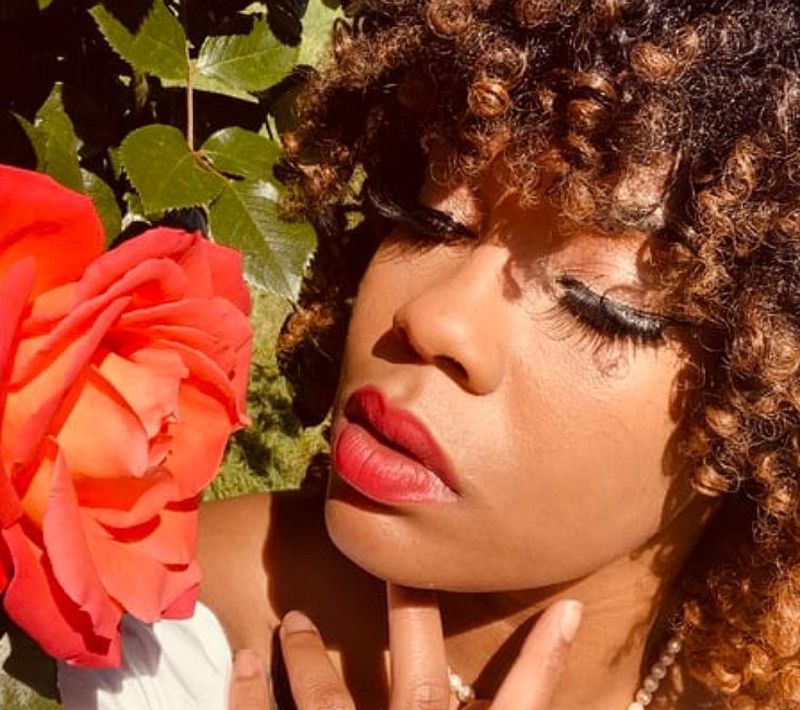
While slaying your natural hair, you might desire to add a bit of color to it at one point to give it an intentional look. Changing the color of your hair from its natural black or brown gives it a very dressy look and there is nothing wrong with that. The problem is that you intend to achieve these new hair colors using regular hair dyes.
These hair dyes are often made with chemicals that are harmful to your natural hair. These chemicals, in a bid to change the color of your hair, destroy the natural pigmentation and dry out the hair, giving it an unattractive straw-like texture. Prolonged use of chemical dyes can leave lasting effects on your hair.
Some of the chemicals hair dyes contain are:
- Hydrogen peroxide: Changes hair texture.
- Parabens: Causes Skin irritation.
- DMDM hydantoin: Can affect the immune system.
Now that you know the kind of damage these artificial hair dyes will do to your body system, you might decide to cancel your plans. What if I told you there is a better and healthier means to change your hair color. Today, we will be discovering and exploring this solution and that is natural hair dyes.
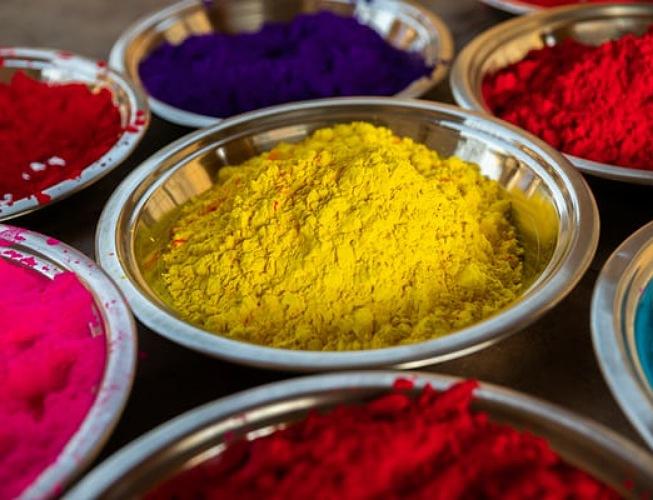
What Are Natural Hair Dyes?
According to Wikipedia, natural dyes are dyes or colorants derived from plants, invertebrates, or minerals. The majority of natural dyes are vegetable dyes from plant sources—roots, berries, bark, leaves, and wood—and other biological sources such as fungi.
Natural Dyes for Healthy Hair
Natural hair dyes are healthy because they add nutrients to your hair, unlike over-the-counter hair dyes which strip nutrients from your hair. They can also be used as many times as possible and will not leave any adverse effects but rather give your hair a healthier and fuller look. The color you get from using natural hair dyes will be calm and would wash away easily whenever you desire to wash it off. Here are some natural hair dyes, their nutritional benefits, and short guides on how you apply them to your hair.
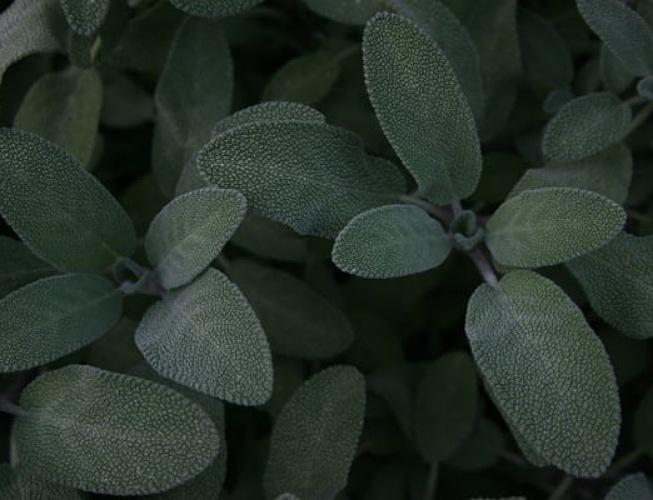
-
Sage Dye
Sage is an evergreen shrub that belongs to the mint family. It is used in herbal medicines and for spiritual purification. Sage is also used as a spice for cooking and in the making of aromatic tea. Sage is useful for dying hair that is losing its natural color, like graying hair or sun-bleached hair.
How to Use Sage For Dyeing Hair
- Infuse twelve healthy sage leaves in one liter of water.
- Bring to a boil
- Leave to steep for an hour to increase the effectiveness
- Drain into containers
- Use a part to rinse your hair.
- Keep the rest in the fridge for daily use.
Note: Sage will darken your hair naturally over time. Sage is natural and does not damage your hair in any way. If you are allergic to mint, you might want to pass on this one. There are other options anyway. Just keep reading.
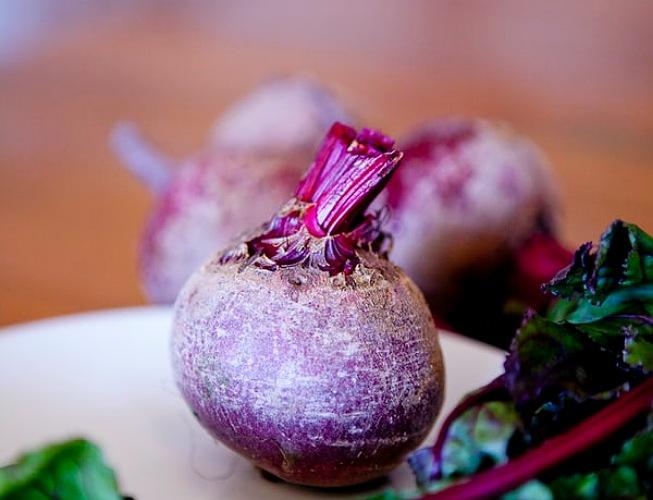
2. Beet Root Dye
According to Wikipedia, the beetroot is the taproot portion of a beet plant, usually known in Canada and the USA as beets while the vegetable is referred to as beetroot in British English, and also known as the table beet, garden beet, red beet, dinner beet or golden beet. It is one of several cultivated varieties of Beta vulgaris grown for their edible taproots and leaves (called beet greens); they have been classified as B. vulgaris subsp. vulgaris Conditiva Group.
Besides being used as a food, beets are also used as a food coloring and as a medicinal plant. Many beet products are made from other Beta vulgaris varieties, particularly sugar beet. Beetroot will give your hair a healthy red tinge. Beetroot juice can also be added to carrot Juice to add a subtle but beautiful orange tint to your reddened hair.
People with darker hair color might find that beetroot does not do so much for them on the first try but that’s alright. You can try again or use another natural hair dye that fits your needs.
Nutritional Properties of Beet Root
Beet root has a high amount of organic nitrate. It also contains folate, vitamin C, magnesium, and potassium.
I will highlight these nutrients and how they could help you have healthier hair.
- Vitamin C
This vitamin is essential for the production of collagen – which supports hair growth, in the body. Vitamin C also helps the body absorb iron, which is essential for hair growth.
- Magnesium
Magnesium strengthens hair and keeps the scalp healthy. It helps unlock follicle hair growth, leading to your hair growing faster.
- Folate
This nutrient helps to promote hair growth and increase hair volume.
How to Use Beet Root for Dyeing Hair
- Wash your beetroot properly.
- Cut them into medium-sized pieces
- Juice beetroot with juicer.
- Cut hair into parts to aid application.
- Apply to hair.
- Use plastic wrap to keep your hair in place and to help the absorption of moisture.
- Leave for two hours or more.
- Rinse.
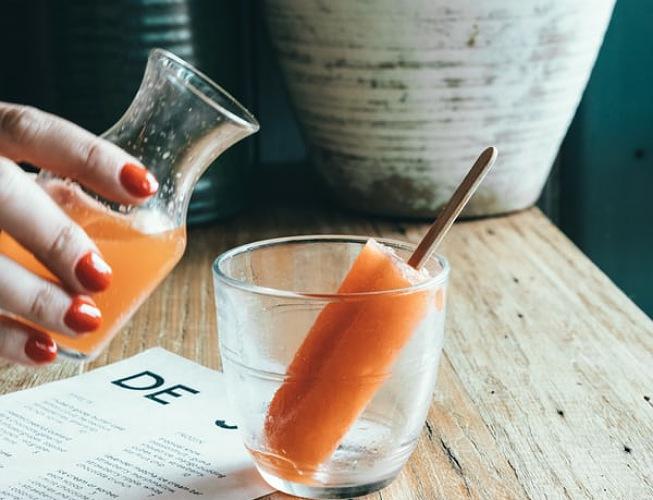
3. Carrot Juice Dye
Carrot Juice dye is a very popular natural cosmetic. Women with lighter hair colors use carrot Juice dye and it gives them subtle highlights that are very pretty. If you want your hair color to pop in tones of red and orange, try adding beetroot juice to your carrot hair dye or applying one dye after the other.
The carrot (Daucus carota subsp. sativus) is a root vegetable, usually orange in color, though purple, black, red, white, and yellow cultivars exist.[2][3][4] They are a domesticated form of the wild carrot, Daucus carota, native to Europe and Southwestern Asia. The plant probably originated in Persia and was originally cultivated for its leaves and seeds. The most commonly eaten part of the plant is the taproot, although the stems and leaves are also eaten. The domestic carrot has been selectively bred for its greatly enlarged, more palatable, less woody-textured taproot.
Nutritional Properties of Carrot
- Beta carotene
Beta Carotene metabolizes into Vitamin C in the body and protects against dullness and dryness in hair.
- Vitamin K1
Vitamin K1 is a natural moisturizer. It strengthens hair and speeds up hair growth.
- Potassium
This nutrient prevents hair loss and stimulates hair growth until your hair is healthy and shiny.
How To Use Carrot For Dyeing Hair
- Wash your carrots properly.
- Cut them into medium-sized pieces
- Blend with as little water as possible.
- Sieve juice from puree.
- Cut hair into parts to aid application.
- Apply to hair.
- Use plastic wrap to keep your hair in place and to help the absorption of moisture.
- Leave for two hours or more.
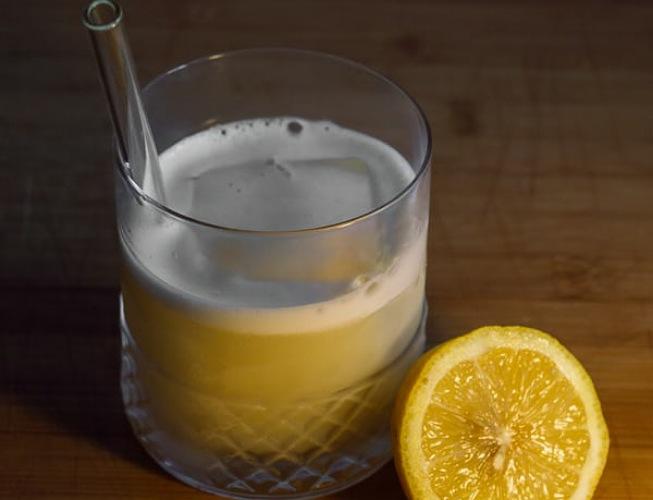
4. Lemon Juice Dye
Apart from being a great ingredient in making lemonade, lemon has another surprise for us. Lemon Juice is a natural hair lightening agent. Do you want to get your hair a shade or two lighter without damaging it? Lemon juice could just be your best option. It is quite easy, however, for lemon juice to harm your hair by drying it out. That has been the complaint of many women who have tried this natural hair dye.
The solution is simple. Whenever you feel your hair drying out after using lemon juice, apply your favorite hair moisturizer and get your hair back in the game.
Nutritional Benefits Of Lemon
- Vitamin C
Lemon’s high vitamin C content is responsible for its lightening abilities. One lemon provided more than half of the Vitamin C your body needs daily. Vitamin C also speeds hair growth while giving your hair the needed color boost.
Scared that your hair will fall off if you use lemon to lighten it? I am here to tell you that is never going to happen. Lemons are so nutritious that they contain folate. This nutrient helps to promote hair growth and increase hair volume which means, your hair will look even better than before.
How To Use Lemon For Lightening Hair
- Rinse your lemons in water.
- Squeeze the water into a bowl
- Add one part water
- Then pour the lemon mixture into a spray bottle.
- Spray on the part of your hair that needs lightening.
- Massage into the hair until evenly wet.
- Take your hair out in the sun to dry.
- Style.
Note: Activate lemon’s lightening effect by staying out in the sun for at least an hour (don’t forget to use sunscreen).

5. Henna Dye
Henna is a very popular cosmetic ingredient that most women use for a lot of things. Women use henna for painting their nails, painting their hands and feet, and dyeing their eyebrows. Henna is also an outstanding natural hair dye. It gives your hair a definite and beautiful color. It is also long-lasting. When purchasing henna, you have to be careful not to buy fake henna which is usually just mixed chemicals. You can get natural henna at Indian or Morrocan stores. You can also get original henna from Amazon.
Henna is a dye prepared from the plant Lawsonia inermis, also known as the henna tree, the mignonette tree, and the Egyptian privet, the sole species of the genus Lawsonia.
Source: Wikipedia.
How To Use Henna Dye For Natural Hair
- Pour half a cup of water inside a dish and place on fire
- Put a few bags of tea inside and allow to soak
- Remove tea bags.
- Juice a lemon and pour into the mixture.
- Mix henna with the water.
- Apply to hair.
- Leave for three hours.
- Rinse off with shampoo and conditioner.
- Blow or air dry.
She's a beauty and an exquisite lady who enjoys the high life in writing and poetry. Her writing style and prowess is innovative and focuses on the feminine perspective, bringing nothing but wholesome gratification to the African, Afrocentric and Afro-American women at large

